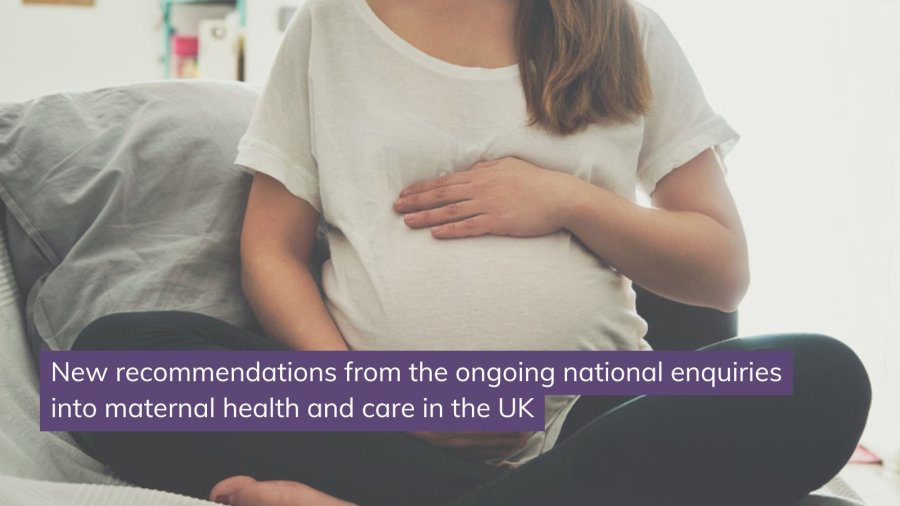Working in the NPEU
The NPEU and the wider department (Nuffield Department of Population Health) operate a range of policies and practices which aim to support NPEU staff and students.
- An inclusive culture
- Training, development and career progression
- Flexible working
- Maternity leave, paternity leave and childcare
- Policy on harassment
An inclusive culture
The University of Oxford is committed to fostering an inclusive culture which promotes equality, values diversity and maintains a working, learning and social environment in which the rights and dignity of all its staff and students are respected. For more information, see the University's Equality and Diversity Unit.
The NPEU maintains a culture that is inclusive and supportive of all members, including those with caring responsibilities and those who work flexibly for other reasons. Wherever possible, Unit meetings and seminars are arranged between core working hours (10am - 4pm) to facilitate participation by all members. Additionally, dates of school holidays are kept in mind when arranging meetings and events.
In addition to the weekly term-time departmental seminars, and others held elsewhere in the University, the Unit organises its own series of monthly research seminars in maternal, infant and child health and a more informal series of fortnightly 'sandwich seminars', which are held at lunchtimes.
We hold frequent coffee mornings, which take place on different days to enable as many staff as possible to attend. There is also an annual departmental summer party which partners and children are invited to attend, and a Christmas party with guest tickets available.
Training, development and career progression
The NPEU recognises and values career development and progression for all staff. Senior staff actively consider opportunities for the development and progression of more junior staff when planning future work and encourage and support staff in developing their careers.
All Unit staff are funded by competitively obtained research grants and are initially employed on fixed-term contracts. The uncertainty inherent in short term contracts is acknowledged; opportunities for continuing employment and potential matches with new posts are considered by the senior leadership team (SLT) members at the monthly SLT meeting when any member of staff is approaching 6 months before the end of their contract. In addition, any member of staff whose contract is renewed after at least 4 years continuous employment is considered for a move to an open-ended contract, provided that there is a reasonable prospect of continued funding.
Personal Development Review
NDPH runs a compulsory Personal Development Review Programme for all staff, which involves an annual review of their job description and training needs and, for research staff, also considers involvement in grant applications, publications, conferences, teaching, management, outreach and citizenship.
Training and career development opportunities
Staff are encouraged to take up the wide range of training courses and career development opportunities available through the University's Centre for Teaching and Learning, People and Organisational Development (POD), Careers Service and IT Services. Research staff and postgraduate research students also have access to training courses and opportunities in personal development through the Medical Sciences Division Skills Training Programme. The University's Support for Researchers webpages are also a really useful starting point for finding out about career development opportunities. We encourage participation in personal development programmes, including the Oxford Women's Development Programme and the Beacon programme, both of which are provided by POD.
Mentoring opportunities are provided by NDPH. For women entering senior leadership POD runs the Oxford Senior Women's Mentoring Network (formerly known as Ad Feminam). For Black and minority ethnic staff the Equality and Diversity Unit runs the Pivot scheme. Staff are also encouraged to consider short-term 'shadowing' or secondment opportunities, either within the Unit or elsewhere, in order to explore potential future career directions and/or gain experience of different kinds of work, and should discuss this with their line manager in the first instance.
Promotions
University salary scales are based on generic job descriptions which reflect the typical requirements and responsibilities for staff operating at each grade. As members of staff develop and take on new roles or responsibilities they may apply to have their posts re-graded to reflect these changes. Members of staff who wish their post to be considered for re-grading are encouraged to discuss this with their line manager in the first instance.
Research fellowships
A number of research funding organisations, including, the National Institute for Health Research (NIHR), the Medical Research Council (MRC) and the Wellcome Trust offer training and development awards, from doctoral and early career researcher level through to opportunities for established investigators and research leaders. The MRC has also developed an interactive career framework. Several current NPEU researchers have successfully applied for these awards at different levels and are happy to share their experience with prospective applicants working in the NPEU. The NDPH Early Career Researcher Network is a useful source of information and regularly host sessions about applying for fellowships. For researchers considering applying for a research fellowship, there is a range of support and resources available from the Fellowship Ahoy! project, including videos and online exercises on creativity and networking. Research staff who are considering applying for a research fellowship, or would like to know more about what is required, should speak to their line manager in the first instance.
University titles and research fellowships
Research staff may apply for the award of the University titles of University Research Lecturer, Associate Professor or Professor through the University's annual Recognition of Distinction exercise. Details of how to apply are advertised by email, usually in October, and individuals are encouraged to discuss their eligibility with their line manager.
Junior and other Research Fellowships are advertised, usually on an annual basis, by University colleges. These are usually competitive and non-stipendiary, but may come with a small research allowance and college dining rights. Details are advertised in the University Gazette and are emailed to staff as appropriate.
Flexible working
Many Unit members benefit from working flexibly to foster work-life balance and we aim to accommodate flexible working wherever possible.
Following a Unit review of flexible working in 2014 a comprehensive Flexible Working Policy was developed. On the basis of this work and informed by the University's flexible working policy NDPH developed a Flexible Working Policy which now covers NPEU staff and is available on the NDPH Intranet.
Maternity leave, paternity leave and childcare
The University provides a generous maternity leave package, as well as provision for paternity, adoption and parental leave.
The University offers a comprehensive range of childcare services including access to the University's subsidised nursery places, reduced nursery and childcare fees and childcare voucher schemes and access to holiday playscheme providers.

Download the NPEU Parent Leaflet
Policy on harassment
The University condemns harassment as an unacceptable form of behaviour and there is a service to help those who think they are being harassed in any way. For further information, please contact the University harassment service or the NPEU harassment advisor.

